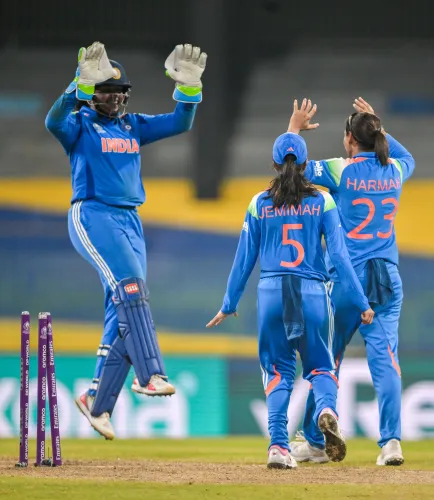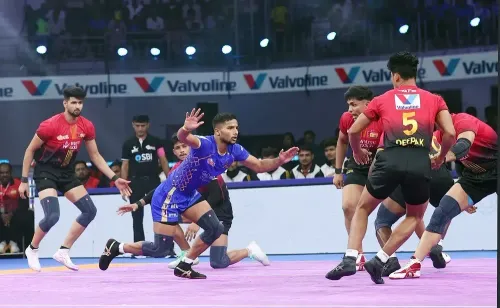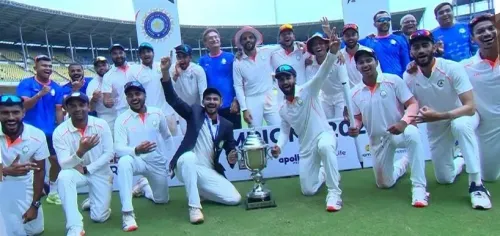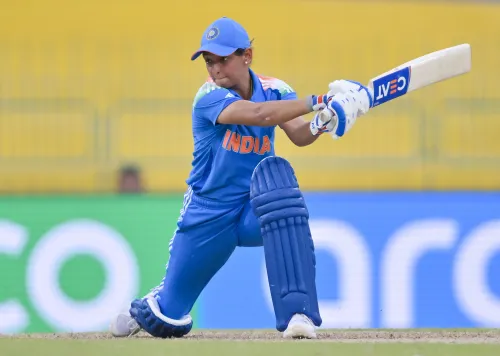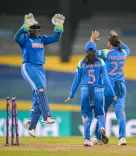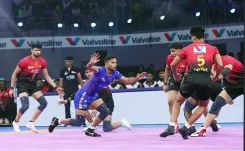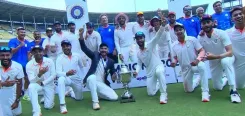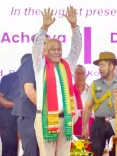How is Cricket West Indies Planning a Revival?
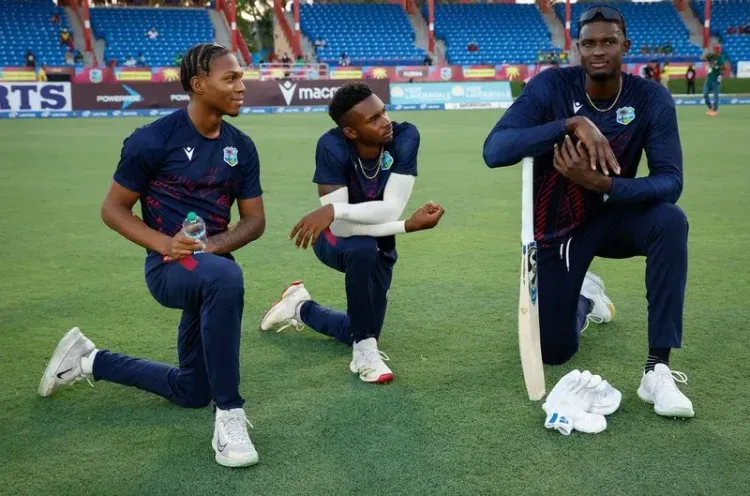
Synopsis
Key Takeaways
- Cricket West Indies is facing a challenging decline.
- Urgent meetings with cricket legends aim to strategize recovery.
- A special ICC financial dispensation is being sought.
- Addressing systemic issues is vital for improvement.
- Future plans include creating high-performance facilities and academies.
Port of Spain, Aug 12 (NationPress) The West Indies find themselves on a different plane compared to other cricketing nations, which has led to an urgent meeting organized by Cricket West Indies (CWI). This assembly featured cricketing icons including Brian Lara, Clive Lloyd, Viv Richards, Desmond Haynes, Shivnarine Chanderpaul, and the current head coach Daren Sammy. They emerged from the discussions with a tentative strategy aimed at revitalizing West Indies cricket. However, participants acknowledged that, as they stated, “it's a long road, it's not going to happen tomorrow.”
One immediate result of the meeting, as Clive Lloyd disclosed, is a proposal to seek a “special dispensation” from the ICC, which entails additional financial backing recognizing the rich cricketing heritage of the West Indies.
While CWI officials and cricket legends like Lloyd and Lara discussed multiple strategies during their two-day session in Trinidad, they stressed that these ideas must undergo internal vetting before any public announcements can be made. There was a shared concern regarding the swift and continuous decline of West Indies cricket. “Hope to see them come to fruition,” expressed Lloyd. “Sincerely hope this doesn’t come to some damp squib.”
According to CWI chief executive Chris Dehring, “We have identified a list of about a hundred things that we have to improve, but probably among the top five: facilities at every level for our cricketers; practice pitches across the region; the quality of our domestic tournaments, there's definitely a skills deficiency at various levels that don't get highlighted till they reach international levels and then you see the glaring deficiencies vis-a-vis our international counterparts, which again is systemic.”
Dehring also mentioned that batting coach Jimmy Adams raised concerns, stating “it's very difficult to change habits when you are getting somebody who has made so many runs at regional level but clearly has deficiencies when it comes to international level. It's very difficult to change in a couple of weeks.” He also pointed out the challenges surrounding strength and conditioning, underscoring the inadequacy of facilities for young and emerging players.
Among the measures CWI is pursuing is the creation of “a proper high-performance centre established in the region, a prototype that will then be modelled and imitated across the region, in other countries,” along with academy systems designed to ensure that “the West Indies way of playing cricket is both documented and taught from very early.”
The urgency for this transformation was highlighted by the recent Test match at Sabina Park in Kingston, where the West Indies were bowled out for a mere 27 runs against Australia—the second-lowest score in Test history and the lowest since 1955. The meeting was announced shortly after that match. Following this, the West Indies participated in ten white-ball games, winning just two and losing eight.
Brian Lara reflected on the broader context, stating, “It's been that case for years, where we are not on the same level-playing field as other playing countries. Back in the days when skill was the prominent factor, we excelled; we were the best team in the world. But the game has evolved, and technology and analytics, and we now have to see a new way of finding ourselves back to being very competitive.” He added, “I said not a level-playing field because a lot of the countries are far ahead in these sorts of areas. The skill factor of the game is still there, but not as prominent as it was in the past.”
“It's a long road; it's not going to happen tomorrow. It was not about the 27 runs. If it was 57 or 107, will we be feeling any better? I don't think so. It was the fact that we've got something to address, and for us to get back on top, or to be a competitive nation in world cricket, we've got to address these situations and address them shortly, quickly, and hopefully we can reap the benefits in the years to come,” Lara concluded.
CWI's director of cricket, Miles Bascombe, characterized the issues as “systemic” and “across our cricket system.” He emphasized the current goal is “identifying the challenges at every level of our production pipeline and how to put all of that together. To have a holistic solution and then we will engage all of the stakeholders necessary to help us along the way.”

